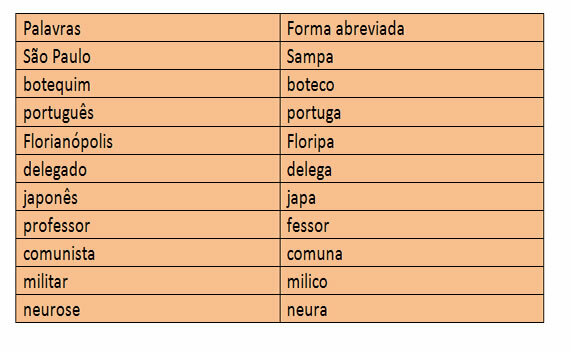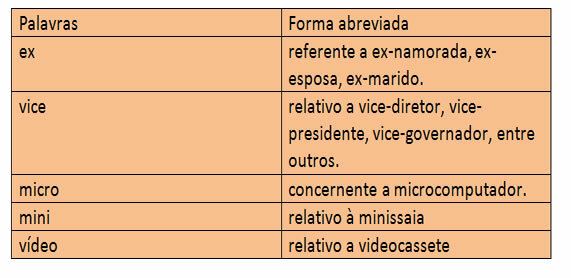Given the dynamic character that guides the language - seen as a strictly social entity -, behold, we come across one of the elements that also integrate the word formation process, as so many others. Remember the derivation and the composition?
Well, our goal is to emphasize the vocabulary abbreviation, which literally consists of the elimination of a segment - referring to a certain word -, in order to obtain a more reduced form of it, without changing the sense. This process is conceived as largely productive in reducing very long words, such as: 
Even though it is part of a colloquial language, many abbreviations have already been incorporated into the standard modality, as we will see later. And it is precisely because of this aspect linked to colloquialism that we can see marks impregnated with meaning, once represented by different feelings, sometimes representing affection, sometimes representing contempt, mockery, prejudice, among others. Perfectly observable in:
Still integrating this modality, there is a type of abbreviation that is quite recurrent in current language, whose characteristic is the use of a prefix or an element of a compound word in place of the whole. Let's look at some examples:

By Vânia Duarte
Graduated in Letters
Source: Brazil School - https://brasilescola.uol.com.br/gramatica/a-abreviacao-vocabularmarcas-linguisticas.htm


